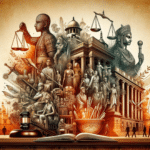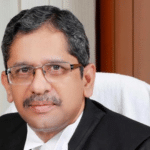The lawyer community in India celebrates Advocates’ Day on December 3rd to commemorate the birth anniversary of Dr Rajendra Prasad, India’s first president and a renowned lawyer. Advocates’ Day brings together labour authorities, labour representatives, public and private sector managers, management representatives, and labour relations neutrals from across the country to hear national and regional speakers discuss the day’s important concerns. Dr Rajendra Prasad was the first President of Independent India, serving from December 3, 1884, to February 28, 1963. He was a pro-independence activist who played a key role in the Indian Independence Movement as the leader of the Congress Party. From 1948 to 1950, he was President of the Constituent Assembly, which produced the Republic’s constitution. He had also briefly served in the first Government of Independent India as a cabinet minister.
He was born in Zeradei, near Chapra, in the Siwan district of Bihar. Mahadev Sahai, his father, was a Persian and Sanskrit language professor, and Kamleshwari Devi, his mother, was a devoted lady. He married Rajvanshi Devi when he was 12 years old. Many famous leaders in his field who came under his instruction were struck by his fearless dedication to the service of the country. He received a gold medal in the Masters in Law test with honours in 1915 and went on to earn his Doctorate in Law. Dr Rajendra Prasad was a very renowned and eminent figure in Bhagalpur (Bihar) during that ceremonious era, where he practised law and studied. Rajendra Prasad was deeply moved by Mahatma Gandhi’s passion, courage, and conviction, and he resigned as a University Senator in 1921 to join the Indian freedom war.
During the Bombay session in October 1934, he was chosen as President of the Indian National Congress and played an active role in achieving the organization’s goals. He was chosen President of India after India gained independence. He was the first President, and he was fiercely independent, refusing to let the Prime Minister or the party take his constitutional powers. However, after the fight over the Hindu Code Bill’s passage, he softened his stance. He established a number of significant examples for future Presidents to follow. He declared his desire to resign in 1962, after 12 years as President, and was succeeded by Dr Sarvepalli Radhakrishnan. On January 2nd, 1954, he was granted the ‘Bharat Ratna,’ the nation’s highest civilian award, which he established. To mark his birthday, India celebrates Advocates’ Day.





